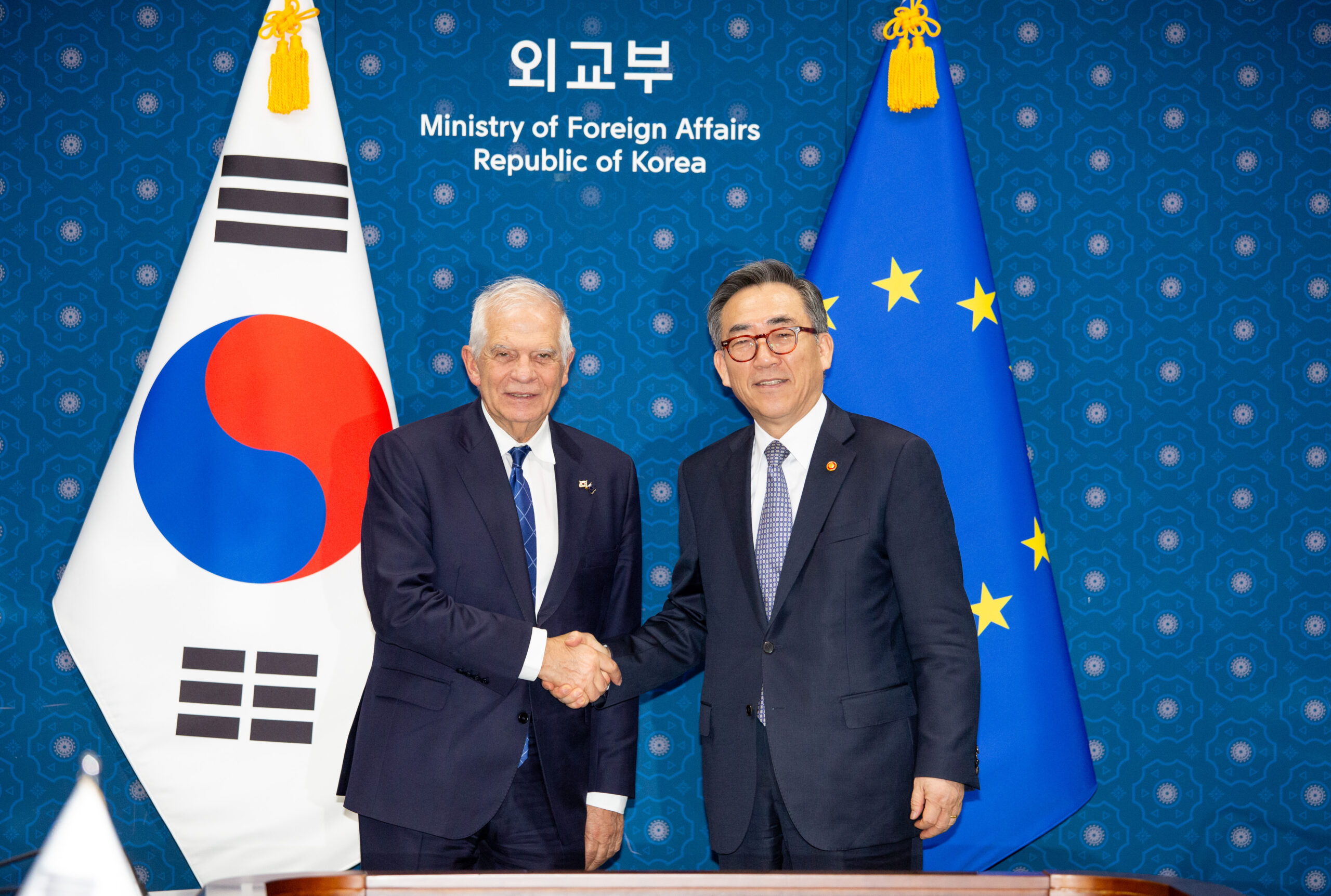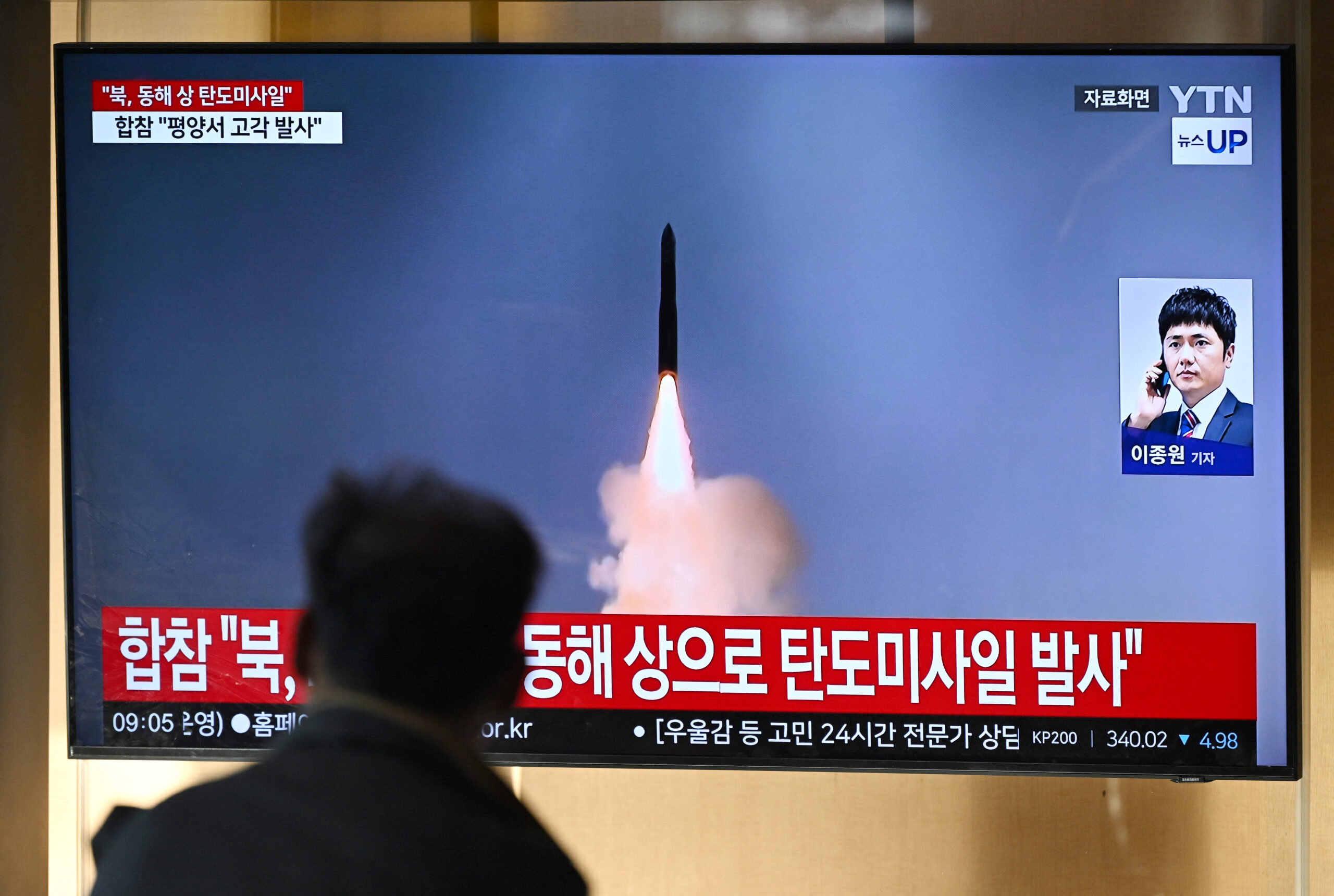Brussels – Following North Korea’s coming out of the closet on support to Moscow, Brussels is asking Seoul for a quantum leap in support to Ukraine. The EU High Representative for Foreign Affairs, Josep Borrell, travelled to the peninsula and inaugurated the first EU-South Korea strategic dialogue. Leveraging the historic—and growing—tensions between Pyongyang and Seoul, Borrell encouraged the Southeast Asian partner to “intensify” its support to Kyiv’s resistance.
Together with South Korea’s Foreign Minister Cho Tae-yul, Borrell announced the Security and Defense Partnership between the EU and the Republic of Korea, a kind of policy framework that identifies the coordinates for enhanced cooperation between Brussels and Seoul in key areas such as maritime security and space defence, cyber issues, countering hybrid threats, information manipulation and foreign interference, counterterrorism, training and education, and nuclear nonproliferation and disarmament.

The timing chosen to seal the partnership is no mere coincidence. In a joint statement, Borrell and his Korean counterpart condemned “in the strongest terms the continued illegal arms transfers” from North Korea to Russia and “the deployment of special forces in Russia in support of the illegal war of aggression in Ukraine.” Borrell and Cho Tae-Yul stress that the cooperation between Kim Jong-un and Vladimir Putin “is not only a blatant violation of multiple UN Security Council resolutions” but “threatens the world’s security, including that of the Republic of Korea and Europe”.
Just today (Nov. 4), Ukraine’s National Security and Defense Council has reported the first firefights between Kyiv forces and North Korean troops in Russia’s Kursk region. From Seoul’s point of view, Pyongyang’s ten thousand soldiers at the front alongside the Russians means, above all, something in return from Moscow: “We are closely monitoring what Russia provides to the DRP in exchange for the provision of weapons and military personnel, including the possible provision of materials and technologies in support of Pyongyang’s military objectives,” the joint statement continues. “Deep concern”, in particular about “the possibility of a transfer of nuclear or ballistic missile-related technology.” The do ut des between the two autocrats only fuels the Kim Jong-un regime’s aggression, as demonstrated by last week’s ballistic missile test, the most powerful ever conducted by the country. In the Korean leader’s words, “an appropriate military action that fully fulfils the purpose of informing rivals of our ability to counterattack.”

In a bilateral meeting with South Korea’s Defense Minister Kim Yong Hyun, Borrell compared the Russian “existential threat” against Ukraine to the relationship between the two Koreas. “The Republic of Korea is in the best position to understand this,” the EU diplomacy chief said. Already last week, during Polish President Andrzej Duda’s visit to Seoul, South Korean President Yoon Suk Yeol had pledged to respond to North Korea’s involvement in Ukraine, including potentially providing arms to Kyiv.
“If North Korea sends special forces into the war in Ukraine as part of the cooperation between Russia and North Korea, we will support Ukraine in steps and review and implement the necessary measures for security on the Korean Peninsula,” he had stated. So far, South Korea has provided Kyiv with humanitarian aid and only indirectly contributed military assistance through supplying weapons to several EU and NATO member countries.
English version by the Translation Service of Withub





